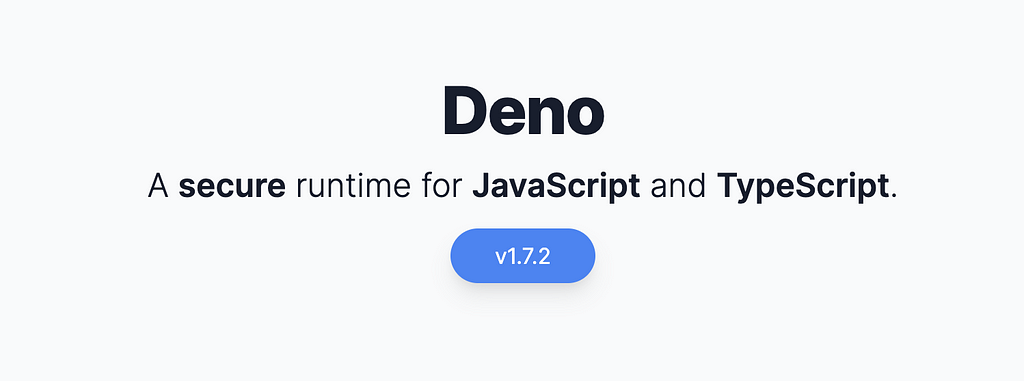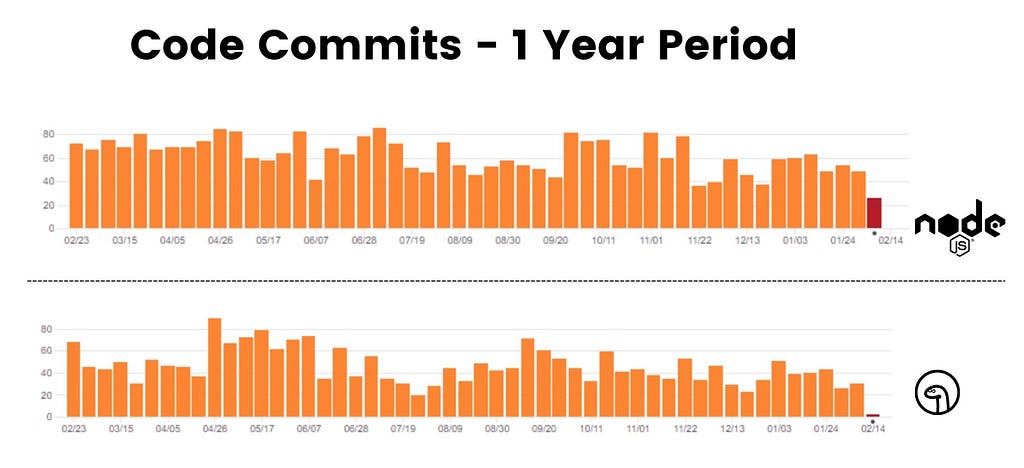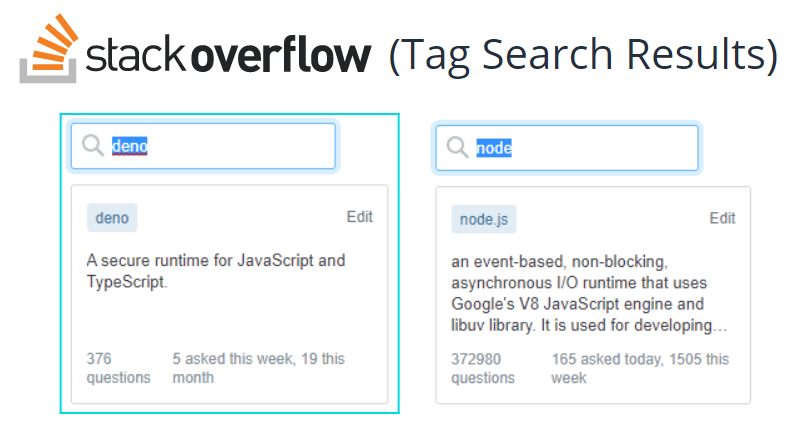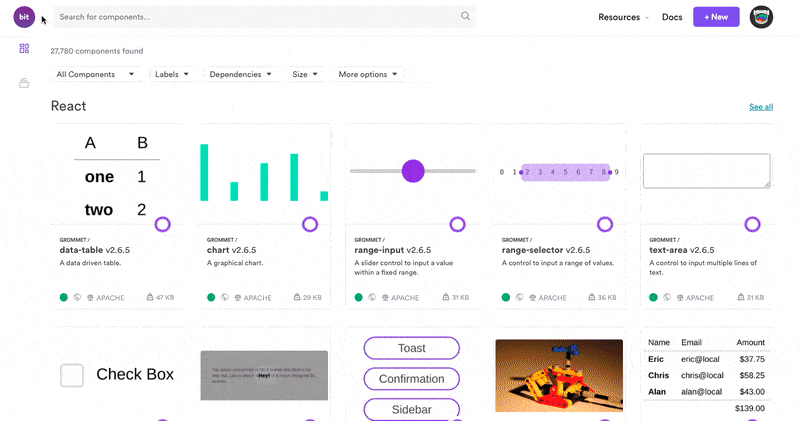This content originally appeared on Bits and Pieces - Medium and was authored by Charuka Herath
Deno, the henchman of pure JavaScript

If you wonder what’s Deno, it is a runtime for TypeScript and JavaScript, invented by Ryan Dahl, the creator of Nodejs. As the successor Deno solves some of the prominent issues we have with Nodejs.
However, as one of the most widely spread ecosystems, Nodejs still holds its grounds.
This article will discuss Deno’s advantages briefly and determine whether it will start getting traction and worth investing time in learning Deno in 2021.
Deno Features in Brief
First of all, let’s look at Deno’s key features that motivate any developer to give it a try.
- Reduced Latency — Compared to Node, Deno applications shows lower latencies.
- Better Concurrency — Deno uses fewer threads. Memory usage is comparably low.
- Higher Throughput — HTTP proxy throughput is high.
- Lower Footprint — File size and bundle size is comparably small. Deno compile generates binaries that are at most 60% smaller than binaries generated by Deno 1.6.
- Libraries Redefined — Deno has exited from npm. It Loads modules by referencing URLs or file paths. Deno modules do not have external dependencies, such as in NPM packages. Most importantly, all the Deno standard Library modules are reviewed by the Deno core team for better quality control.
- First-class promises and async/await — WIth NodeJS promises never made their way. However, for all requests, Deno returns a Promise that resolves the Response to the request, even it is successful or not.
- Secure by Design — Deno follows the principle of least privilege. Unlike Node, even to access any run time resources requires special flags, e.g.: —- allow-write, —- allow-net, —- allow-env, —- allow-run.
- Follows ES6 standards (ES6 imports) — Deno is purely under JavaScript standards.
NodeJS has a common JS module loading standard to import modules that do not require any file extension. Also, the methods of importing modules are different for ES6 standards syntax.
//Way in NodeJS
var express = require(“express”);
//Way in ES6 standards
import {express} from "express";
Understanding its Progress
Deno 1.0, the stable version, was released in May 2020. Since then, Deno’s story is quite impressive, and Deno is getting stronger version by version up to version 1.7.

Deno 1.0: Provided a standalone tool for quickly scripting complex functionality, first-class typeScript support added, Rust APIs, stability improvements, and compatibility improvements were added.
Deno 1.4: Web Standard WebSocket API-ability to communicate with WebSockets, Deno run — watch the command automatically reload it on any file change, availability of test coverages are some of the features.
Deno 1.5: Availability of tree shaking for Deno bundle, which made it 15x faster than before.
Deno 1.6: Deno became completely standalone executables and release binaries that run natively on Apple’s new M1 chip.
Deno 1.7: 60% small binaries for Deno compile, Deno supports for configurable web worker permissions, support for cross-compilation for Linux, Windows, and macOS, and many more.
If you look at its official GitHub repository, it becomes evident that lots of efforts were put in place for Deno.
Community Contributions Look Promising ?

If you look at the number of commits, both Deno and Node are getting lots of community contributions during the past year. Since Deno is new, I’m quite happy to see that it is catching up with community contributions. So overall, the Deno development is progressing well.
Developer Adoption has a Huge Gap. ?
However, searching the activity in Stackoverflow shows that not many people are using Deno in practice.

There are several reasons for this. As we all know, NodeJS is a huge ecosystem that will live for many years. And it will take several years, even if someone decided to migrate a codebase from Node to Deno.
Deno is not just a new version of Node, rather a whole new platform.
However, we need to give it time to build the ecosystem with the essential libraries to aid the application developments.
Then it comes to the main question, will Deno catchup with NodeJS in 2021?
Tip: Share components between projects using Bit (Github).
Bit makes it simple to share, document, and reuse independent components between projects. Use it to maximize code reuse, keep a consistent design, and build apps that scale.
Bit supports Node, TypeScript, React, Vue, Angular, and more.

Will Deno Catchup with NodeJS in 2021?
Looking at all the facts, it is not very confident. In my opinion, it will take several more years for developers to start using Deno for web application development.
Is it Worth Learning Deno in 2021?
Regardless of Deno’s adoption, learning it might help you to be a better NodeJS developer by knowing Node’s limitations. Besides, you can be prepared for the future even if you use NodeJS, keeping the required provisions.
So I would recommend to tryout Deno and get to know how it works since it won’t take much time to familiar with the technology.
Summary
It is only three years completed for the Deno story. However, Deno has accelerated into a better position in the IT industry. With the support of TypeScript, JavaScript and, Rust, and many new features, Deno gives many promises for the future.
However, more than 90% of developers are adapted for NodeJS because of critical reasons such as NPM packages, large community, Commercial level projects, etc.
So as I stated before, I feel it’s too early to jump into the technology for new projects.
Do you agree or disagree with me? Feel free to leave a comment down below.
Thank you for reading.
Learn More
- Will Deno Kill NPM?
- Introduction to Aleph - The React Framework in Deno
- Is Deno Secure, Fast, Lightweight, and Better than Node?
Will Deno Catchup with NodeJS in 2021? was originally published in Bits and Pieces on Medium, where people are continuing the conversation by highlighting and responding to this story.
This content originally appeared on Bits and Pieces - Medium and was authored by Charuka Herath
Charuka Herath | Sciencx (2021-02-24T19:08:51+00:00) Will Deno Catchup with NodeJS in 2021?. Retrieved from https://www.scien.cx/2021/02/24/will-deno-catchup-with-nodejs-in-2021/
Please log in to upload a file.
There are no updates yet.
Click the Upload button above to add an update.
